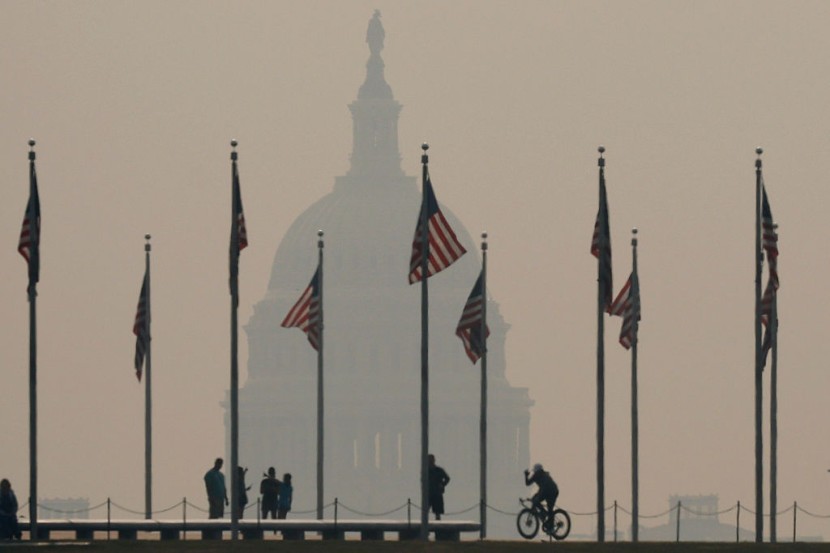
Smoke from the Canadian wildfire continues to blanket skies above the midwest, causing a drop in air quality in the region, leaving many residents of the third-largest city in the country forced to wear masks when going outdoors.
Chicago residents were largely free of the severe effects of the wildfires earlier this month when toxic smoke affected the Northeast and some areas of the Midwest for several days. However, they were not spared on Tuesday, when authorities classified the air in the city and other parts of Illinois, Wisconsin, Indiana, Michigan, and Minnesota as unhealthy.
Canadian Wildfire Continues To Spew Smoke
The Air Quality Index in Chicago reached 209 by noon, the worst reading of any major city in the world for that particular day. On the other hand, in Green Bay, Wisconsin, the index was found to be at 175, and in Grand Rapids, Michigan, it was at 255.
Authorities consider any reading above 100 on the index a warning to people with respiratory conditions, urging residents to take proper precautions to protect themselves. In a statement, Chicago Mayor Brandon Johnson warned residents, especially younger kids, the elderly, and those with heart or lung disease, to stay indoors as much as possible and only go out if they wear face masks, per the New York Times.
Johnson noted that during the summer, various cities across North America experienced unhealthy levels of air due to the Canadian wildfire smoke. He added that the situation has affected more than 20 million people from New York City, Washington, D.C., Montreal, and Chicago.
The Democratic official said they are working to respond to the immediate health concerns in communities affected by the smoke. He added that the situation demonstrates and underscores the harmful effects of the climate crisis on people in the community and globally.
Authorities expected similar levels of smoke, and potentially thicker concentrations, on Tuesday in various other cities in the region, including Milwaukee. National Weather Service forecasters from the agency's office in Milwaukee said the day would normally have looked beautiful for people to go outside. However, the smoke reduced visibility so much that people could only see a mile to three miles away.
Unprecedented Wildfire Season
The situation in Canada is considered one of the worst in the country's history as it struggles in the eastern province of Nova Scotia. As of Tuesday afternoon, officials noted that 488 active wildfires were burning across the country, more than half of which, 259, were considered "out of control," according to Yahoo News.
The amount of smoke produced by the Canadian wildfire has reached the highest ever recorded in the nation's history. While the usual wildfire season in the country reaches its peak around mid-July, the first of hundreds of blazes that are currently burning started in May and are still spreading.
Canadian Prime Minister Justin Trudeau earlier this month described the start of the nation's wildfire season as "unprecedented." Authorities warned that the warm and dry conditions would likely result in "higher-than-normal fire activity" across much of the country throughout the 2023 season, said ABC News.
Related Article : NATO Leaders Warn of Wagner Mercenary Group's Redeployment to Belarus
© 2026 HNGN, All rights reserved. Do not reproduce without permission.








